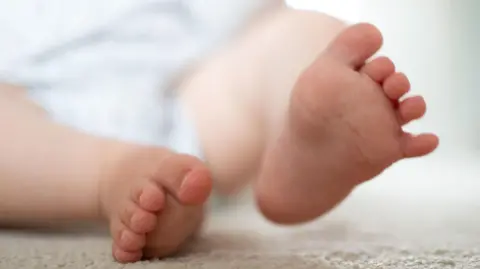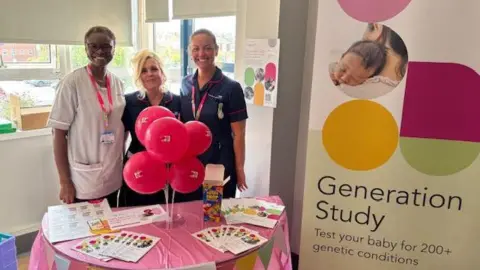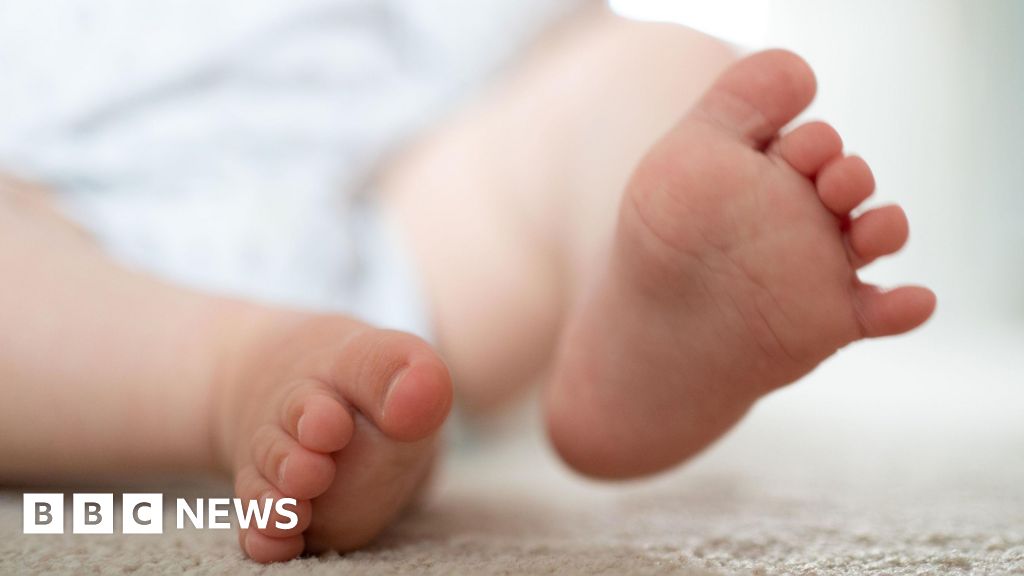 PA Media
PA MediaTest for more than 200 rare genetic conditions are being offered for newborn babies as part of a national study.
Sunderland Royal Hospital and South Tyneside District Hospital in South Shields are among the 47 hospitals so far taking part in the Generation Study.
The project, led by Genomics England alongside NHS England, aims to screen 100,000 newborns to identify rare conditions earlier and enable research into genes and health.
The tests will look for well-known conditions such as cystic fibrosis, but also rare ones like metachromatic leukodystrophy (MLD) – an inherited disorder which affects the brain, causing progressive loss of physical and mental skills.
Research midwife Lucy Rowland, from South Tyneside and Sunderland NHS Foundation Trust, said they were “really excited” to be part of the study.
“If a condition is suspected, the appropriate treatment can be started promptly as early intervention is key,” she said.
“It will be interesting to see this study develop.”
 South Tyneside and Sunderland NHS Foundation Trust (STSFT)
South Tyneside and Sunderland NHS Foundation Trust (STSFT)Expectant parents will be told about the study during pregnancy.
If they are interested, a research midwife will then talk to them in detail.
A blood sample is then collected shortly after birth, usually from the umbilical cord.
Rachel Nicholson, one of the consultants on the maternity team at the trust, said: “While we want as many people as possible to sign up to help build the biggest picture we can of genetic conditions, we want to stress there is no pressure to get involved.
“Everyone knows what is right for them and their family.”
The Generation Study has been set up after consultation with parents and families affected by rare conditions.
Healthcare professionals, policy makers and scientists have also been involved.
It is set to run until March 2027 and the Royal Victoria Infirmary in Newcastle is also participating.

